ChatGPT: Revolutionizing Job Markets and Maximizing Income Opportunities
In the ever-evolving landscape of digital technology, ChatGPT Is now revolutionizing The Job Market. ChatGPT is transforming the way we communicate, work, and earn. This smart language model, designed by OpenAI, has become a game-changer in numerous fields. From customer support to content creation, ChatGPT is making its mark, proving to be a lucrative tool for the savvy entrepreneur. But like every innovation, it's not without its pros and cons. Let's dive into the world of ChatGPT, its impact on job markets, and how you can harness its potential for financial gain.
Understanding the Basics of ChatGPT
Have you ever wondered what ChatGPT is and how it works? In this article section, we will explore the fascinating world of ChatGPT and uncover the key aspects that make it such a game-changer in today's job markets. So, let's dive right in!
How ChatGPT Works
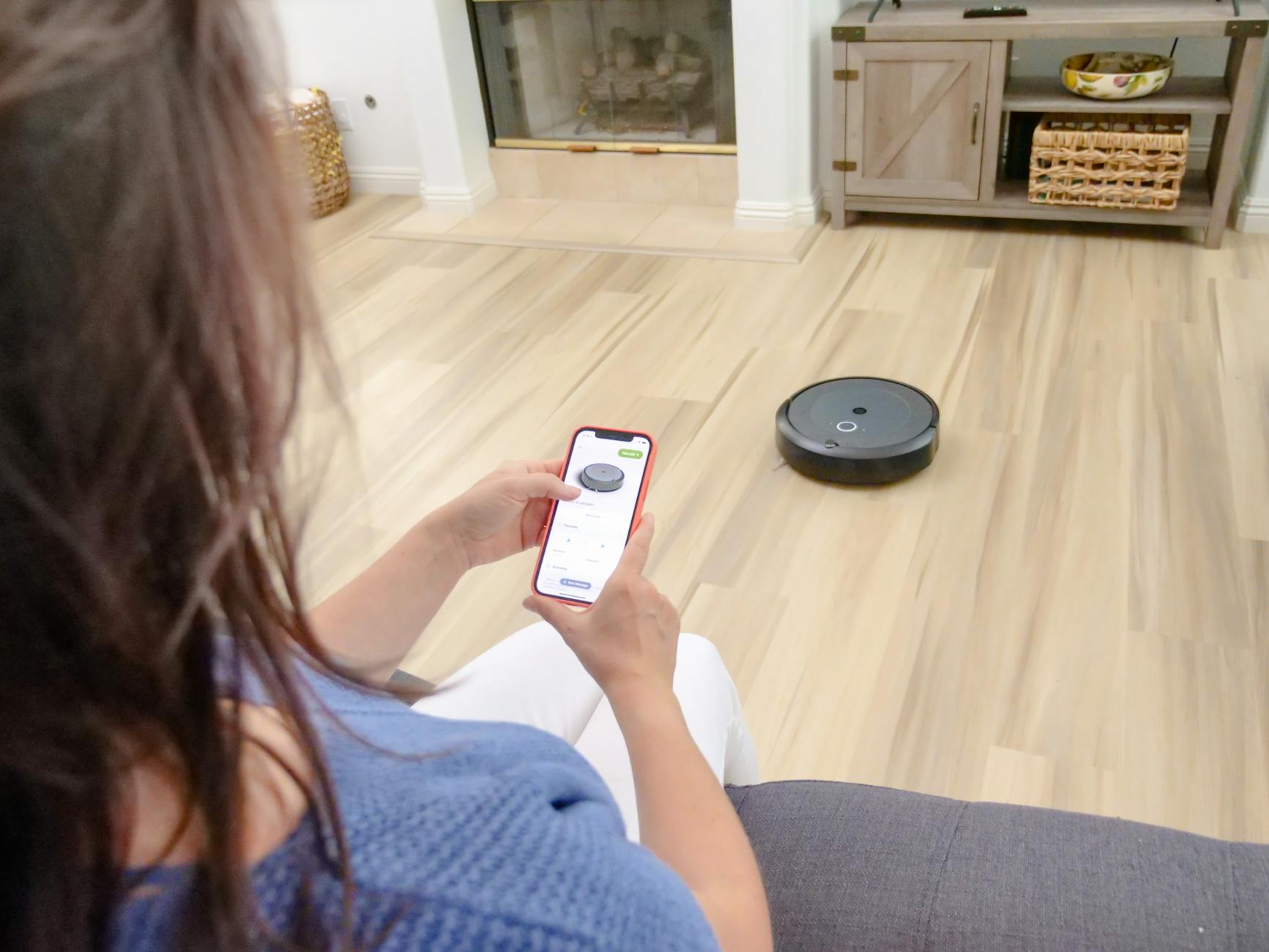
(Photo by Kindel Media)
ChatGPT, developed by OpenAI, is an advanced language model powered by artificial intelligence. It is designed to engage in human-like conversations and provide responses to various prompts or queries. This revolutionary technology has gained significant attention for its potential to transform the way we interact with machines and automate repetitive tasks.
Here's how you get ChatGPT:
1. Go to chat.openai.com and log in or register
Start by going to chat.openai.com and then use an email address or a Google or Microsoft account to sign up. You need to create an account on the OpenAI website to log in and access ChatGPT, but it is free.
If you've never created an account, click 'Sign up' and follow the prompts to enter your information. OpenAI does require a valid phone number for verification to create an account on its website.
If you haven't created an account, click on 'Sign up'. Otherwise, log in with your OpenAI credentials.
2. Accept the disclaimers from ChatGPT
Next, you'll see a few disclaimers before you can chat with the AI chatbot. Please read and accept them one by one to enter the chat.
The terms will come up in three stages, click Next on the first two and Done on the last one.
3. Learn how to use ChatGPT
Once you've logged in to your OpenAI account on the ChatGPT side of the website, it's time to get to know the AI tool's window. Here's a breakdown of what you will see, with the image below as an example:
- New chat & hide sidebar buttons: On the left-hand side of your screen, you'll see a button for 'New chat' that you can click on to start a fresh conversation at any time. This feature is useful because the ChatGPT model remembers what was previously discussed in a conversation and will respond with context, so starting a new chat will create a new discussion without prejudice or context.
- Chat history: The left sidebar also keeps all your previous conversations accessible in case you need to go back to one, though there is the option for turning off chat history. Here you can edit the title of each chat, share your chat history with others, or delete it.
- Account: Clicking on your e-mail address or name on the bottom left of your screen will give you access to your account information, including settings, the option to log out, and help and FAQ from OpenAI. If you don't have ChatGPT Plus, you'll see an Upgrade to Plus button here.
- Your prompts: The questions or prompts you give the AI chatbot appear here.
- ChatGPT's responses: Whenever ChatGPT responds to your queries, the logo will appear on the left. The Copy, Thumbs Up, and Thumbs Down buttons appear to the right of each response. You can copy the text to your clipboard to paste it elsewhere and provide feedback on whether the response was accurate. This process helps fine-tune the AI tool.
- Regenerate response: If you have issues getting a response in the chat or don't get a satisfactory answer, you can click on 'Regenerate response' to prompt ChatGPT to try again with a new reply for the latest prompt.
- Text area: This section is where you enter your prompts and questions; just hit enter to send them.
- ChatGPT version: OpenAI includes a bit of fine print below the text input area, where you can read the disclaimer that this is a "Free Research Preview. ChatGPT may produce inaccurate information about people, places, or facts". This section also shows the version of the ChatGPT model you're currently using.
The numbered areas are explained above.
4. Start writing your prompts and questions
Now you know how to log in to and access ChatGPT, it's time to get started. You can ask the language model any burning questions you might have and see what answers you get -- the possibilities are, quite literally, endless. ChatGPT is a tool that can be applied in endless projects, from software development to writing and onto translations.
Also: How ChatGPT can rewrite and improve your existing code
Type in any ChatGPT prompts in the text bar at the bottom of the page and press enter to submit your questions. The AI chatbot will then generate text to provide helpful answers to your queries.
Start writing in the text box at the bottom of the page. Then, press enter to submit your prompt.
What is the best way to use ChatGPT?
ChatGPT can generate responses to prompts (a feature that could eventually challenge search engines) that are enough to become an essential tool for content generation, from writing essays to summarizing a book for you. Still, it can also write and fix code, make calculations, help you compile your resume, translate information, and more.
The better the prompt, the better the response will be. Here are examples of prompts you could start with:
- How does a computer store and process information?
- Analyze this code and tell me how to fix it: [Paste the code]
- Write a poem about migraine in the style of Walt Whitman.
- Write a country song about a dog named Speckles who loves to run.
- Write a plugin for ----- that does -----
- What is the difference between a virus and a bacterium?
- Write a sick note for my child who is missing school.
Here's a closer look at how ChatGPT works:
Training Data: ChatGPT is trained on a massive dataset containing a wide range of internet text. It learns from this extensive corpus to generate coherent and contextually relevant responses.
Prompt Input: Users can interact with ChatGPT by providing prompts or questions. These prompts serve as the starting point for the conversation and elicit responses from the model.
Context and Comprehension: ChatGPT analyzes the given prompt, identifying the context and understanding the nuances of the query. It then generates a response based on the learned patterns and information within its training data.
Response Generation: ChatGPT generates responses by predicting the most probable next word or phrase based on the context it has learned. It aims to provide coherent and meaningful replies that align with the given prompt.
Fine-Tuning: OpenAI further refines ChatGPT through a process called "fine-tuning." They use reinforcement learning techniques to guide the model's behavior and ensure it adheres to desired guidelines and ethical considerations.
It is worth noting that while ChatGPT is incredibly impressive, it may occasionally produce incorrect or nonsensical responses. It is a work in progress, and OpenAI actively encourages user feedback to improve its performance and mitigate potential biases.
In the next sections, we will explore the ways in which ChatGPT is revolutionizing job markets and how individuals can leverage this technology to create new opportunities for themselves. Stay tuned!
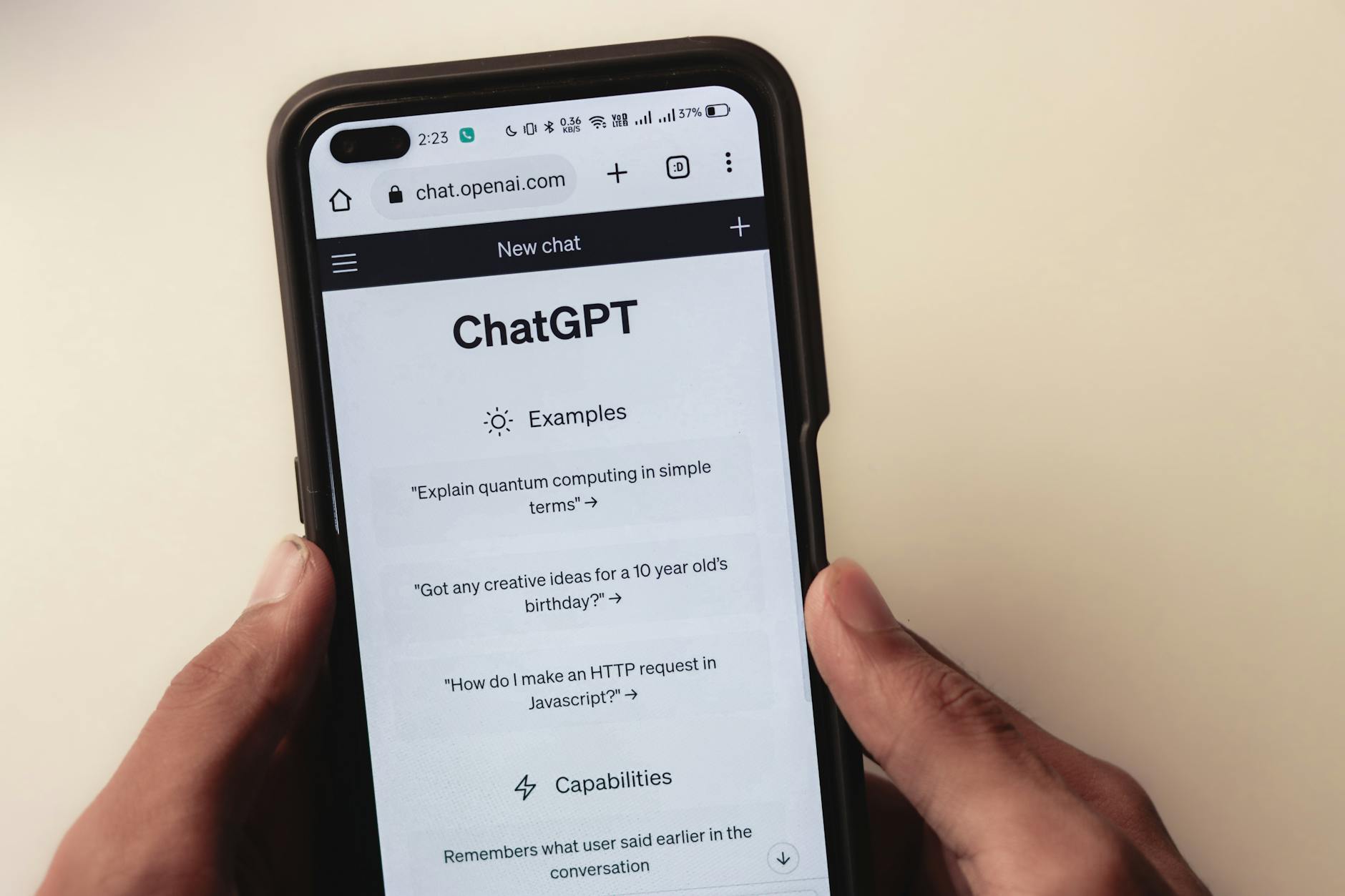
(Photo by Sanket Mishra)
How ChatGPT is Changing the Job Markets
Automation and Job Disruption
The rise of ChatGPT, an advanced language model powered by artificial intelligence, has undoubtedly brought about significant changes in the job markets. With its ability to generate human-like text and engage in conversations, ChatGPT has the potential to automate various tasks that were previously performed by humans. This automation has led to concerns about job disruption in several industries.

(Photo by Andrew Neel)
Imagine a world where customer service representatives, once responsible for answering customer queries and providing support, are replaced by chatbots powered by ChatGPT. These chatbots can handle numerous customer interactions simultaneously, providing quick and efficient responses. While this undoubtedly increases efficiency and reduces costs for businesses, it also raises questions about the future of traditional customer service jobs.
Similarly, in sectors like content creation and data analysis, ChatGPT's ability to generate high-quality text and analyze vast amounts of information can potentially replace human workers. This shift towards automation has the potential to disrupt these industries, as businesses can rely on ChatGPT to perform tasks that were previously time-consuming and resource-intensive.
New Opportunities and Job Creation
While automation may disrupt certain job roles, it also opens up new opportunities and leads to job creation in other areas. As technology advances, there is an increasing demand for individuals who can develop, maintain, and improve AI-powered systems like ChatGPT.
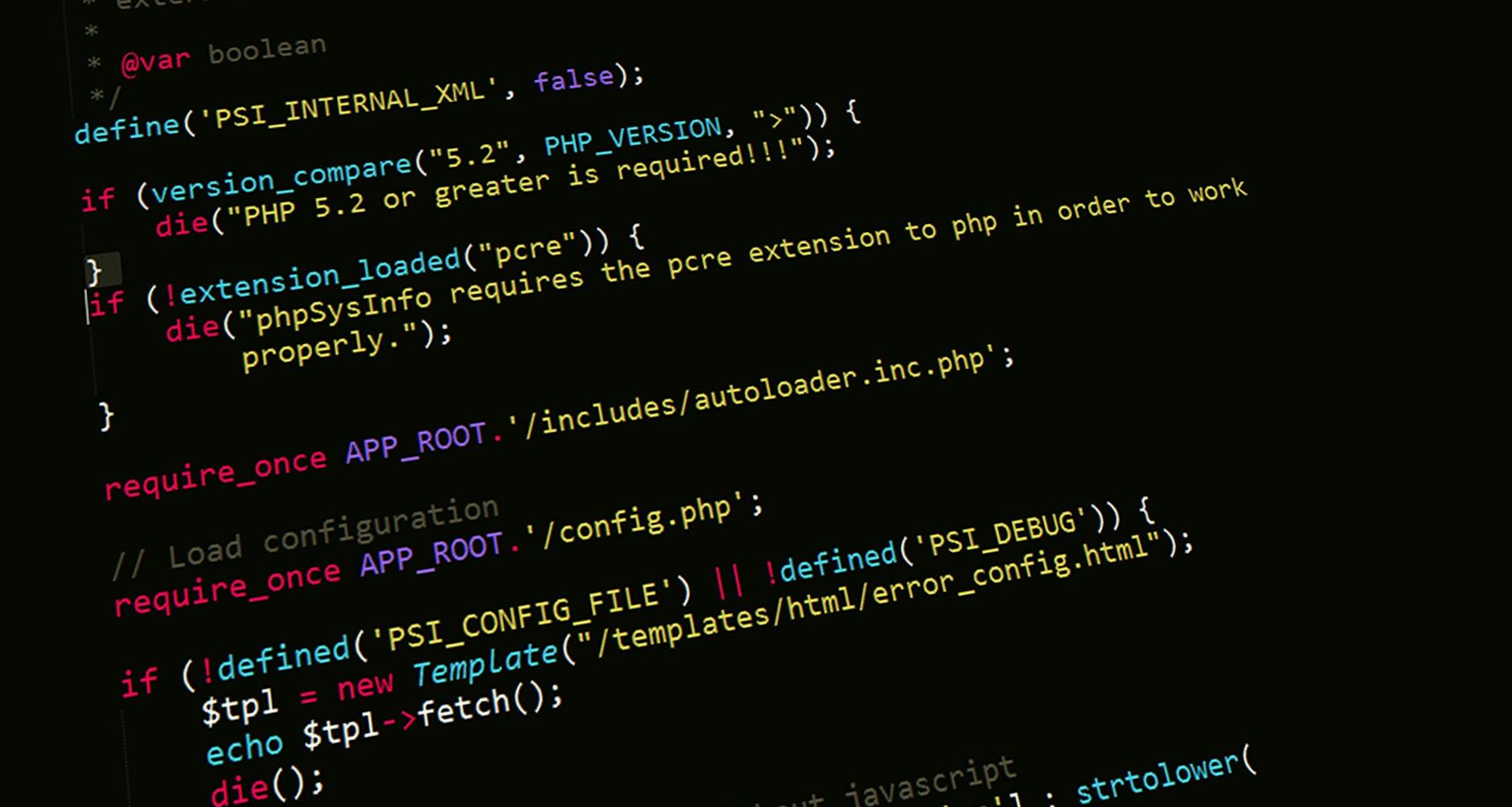
(Photo by Pixabay)
The development of ChatGPT itself requires a team of experts in artificial intelligence, machine learning, and natural language processing. These professionals are crucial in ensuring the accuracy, effectiveness, and ethical use of the technology. As a result, the job market sees a surge in demand for AI specialists, creating new career paths for individuals interested in this field.
Additionally, while ChatGPT can automate certain tasks, it also enhances the capabilities of human workers in various industries. For instance, in customer service, ChatGPT can assist representatives by providing them with real-time insights and suggested responses, enabling them to handle complex interactions more effectively. This fusion of human and AI capabilities creates new job roles that involve working alongside ChatGPT rather than being replaced by it.
Furthermore, as businesses adopt ChatGPT for various applications, there is a need for professionals who can customize, deploy, and maintain these AI systems. This demand leads to the emergence of roles such as AI consultants and AI trainers, who help organizations integrate ChatGPT into their workflows and ensure optimal performance.
In conclusion, while ChatGPT's automation capabilities may disrupt certain job roles, it also presents new opportunities and job creation in the field of AI. As technology continues to evolve, it is essential for individuals to adapt and acquire the necessary skills to excel in this changing job market. By embracing the potential of ChatGPT and understanding its impact, both businesses and individuals can navigate the evolving landscape and thrive in the age of AI.
The Many Ways You Can Make Money Using ChatGPT
ChatGPT, the advanced language model developed by OpenAI, is not only revolutionizing the field of artificial intelligence but also creating new opportunities for individuals to make money. With its ability to generate human-like responses and engage in natural conversations, ChatGPT has paved the way for various lucrative avenues. Let's explore some of the exciting ways you can leverage ChatGPT to earn income.
ChatGPT in Customer Service

(Photo by Nattaphat Phau)
Many businesses are incorporating ChatGPT into their customer service operations to provide quick and efficient support. With its ability to understand and respond to customer queries, ChatGPT serves as a virtual assistant, handling routine inquiries and resolving issues promptly. By integrating ChatGPT into their customer service systems, companies can enhance their response times, improve customer satisfaction, and reduce the workload on human agents.
As a ChatGPT expert, you can offer your services as a customer service representative to businesses looking to streamline their support channels. Whether it's answering frequently asked questions, troubleshooting problems, or providing product recommendations, you can earn a steady income by helping companies deliver exceptional customer experiences.
ChatGPT in Content Creation
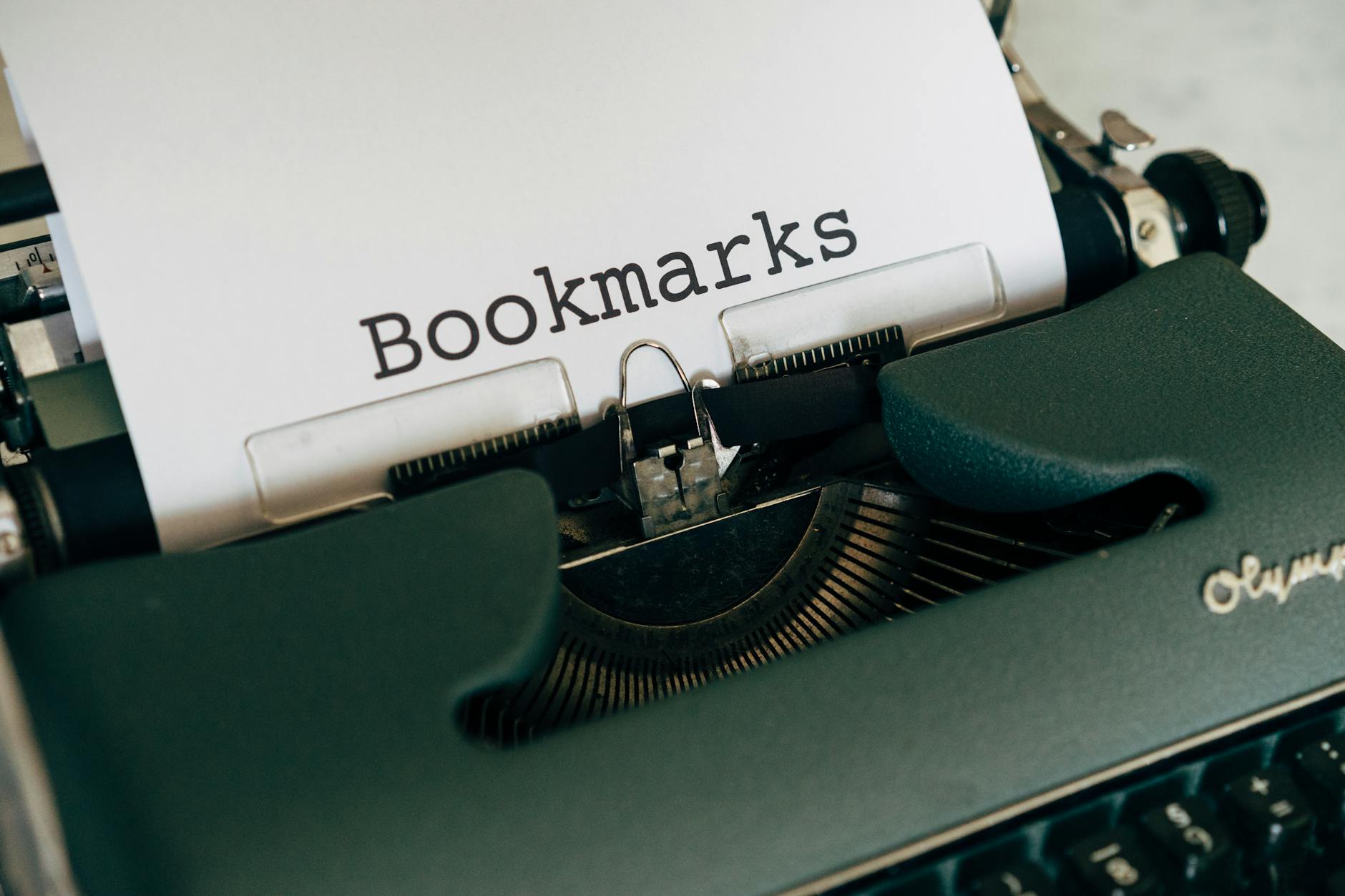
(Photo by Markus Winkler)
Content creation is a booming industry, and ChatGPT can be a valuable tool for writers and marketers alike. With its ability to generate coherent and engaging text, ChatGPT can assist in ideation, drafting, and refining content. By collaborating with ChatGPT, you can unlock a world of possibilities in content creation.
Whether you're a freelance writer, a blogger, or a social media manager, you can leverage ChatGPT to enhance your productivity and creativity. From generating blog post ideas to crafting compelling headlines and improving the overall quality of your content, ChatGPT can be a valuable asset in your content creation journey. By offering your expertise in combination with ChatGPT's capabilities, you can attract clients and create high-quality content that drives traffic and engagement.
ChatGPT in Virtual Assistance

(Photo by Ono Kosuki)
As the demand for virtual assistants continues to rise, ChatGPT presents an exciting opportunity to enter this growing field. With its natural language processing capabilities and ability to perform tasks autonomously, ChatGPT can function as a virtual assistant for busy professionals, entrepreneurs, and small businesses.
You can provide virtual assistance services by leveraging ChatGPT's skills in managing calendars, scheduling appointments, answering emails, conducting research, and much more. By offering your expertise in combination with ChatGPT's capabilities, you can become a reliable virtual assistant and help individuals and businesses stay organized and focused.
In conclusion, ChatGPT opens up a world of possibilities for individuals to make money in various domains. Whether it's customer service, content creation, or virtual assistance, the power of ChatGPT can be harnessed to deliver exceptional results and create new income streams. So, why not leverage this groundbreaking technology and embark on an exciting journey of career growth and financial success?
Remember, with ChatGPT, the possibilities are endless!
Pros & Cons of Using ChatGPT
Pros of ChatGPT
ChatGPT, an advanced language model developed by OpenAI, has revolutionized the way we interact with technology. Here are some of the key advantages of using ChatGPT:
Versatility: ChatGPT can be used for a wide range of tasks. Whether you need help with writing, editing, brainstorming ideas, or even learning new concepts, ChatGPT can provide valuable assistance. Its versatility makes it a valuable tool for professionals in various industries.
24/7 Availability: Unlike human assistance, ChatGPT is available round the clock. It doesn't get tired, take breaks, or need vacations. This means you can rely on ChatGPT's assistance whenever you need it, ensuring uninterrupted productivity and efficiency.
Increased Productivity: ChatGPT can save you a significant amount of time. Instead of spending hours researching or struggling with complex problems, you can simply ask ChatGPT for help. It can quickly generate ideas, provide relevant information, and even assist with repetitive tasks, freeing up your time for more important work.
Improved Creativity: ChatGPT's ability to generate ideas can be a valuable asset for content creators, writers, and marketers. It can help you overcome writer's block, suggest unique perspectives, and even assist in content planning. By tapping into ChatGPT's creative abilities, you can enhance the quality and originality of your work.
Cons of ChatGPT
While ChatGPT offers numerous benefits, it's essential to consider the potential drawbacks as well. Here are a few cons of using ChatGPT:
Lack of Contextual Understanding: ChatGPT operates based on patterns and statistical analysis rather than true understanding. This means the system may sometimes produce responses that lack context or fail to grasp the nuances of a specific situation. Users must be cautious when relying solely on ChatGPT's suggestions without critically evaluating the output.
Potential Bias and Inaccuracies: Like any language model, ChatGPT can reflect biases present in the data it was trained on. It may inadvertently generate biased or inaccurate content. OpenAI has implemented certain measures to address this issue, such as the use of prompts to specify desired behavior, but it's important to remain vigilant and critically evaluate the output for biases or inaccuracies.
Limited Domain Knowledge: While ChatGPT is capable of understanding a wide range of topics, it may lack expertise in certain niche domains. When seeking specialized or highly technical information, relying solely on ChatGPT may lead to incomplete or inaccurate results. It's crucial to verify information from trusted sources and consult domain experts when necessary.
Limited User Interaction: Although ChatGPT has made significant strides in conversational abilities, it may still struggle with complex or multi-turn conversations. Responding to nuanced queries or maintaining a coherent conversation over an extended period can be challenging for the system. Users should be aware of its limitations and adjust their expectations accordingly.
While ChatGPT offers many advantages, it's important to be aware of its limitations and use it as a tool to complement human intelligence rather than replace it. By understanding the pros and cons, users can leverage ChatGPT effectively and make informed decisions about its usage.
FAQ's
What is ChatGPT?
ChatGPT is a large language model that uses artificial intelligence to hold text conversations with users.
Also: How to use ChatGPT to create an app
These conversations can feel as natural as if you were asking someone questions.
How do I use ChatGPT for the first time?
You must register for an OpenAI account to use ChatGPT for the first time. Sign up for a free OpenAI account using your email address and a valid phone number and get started with ChatGPT following the steps above.
How can I access ChatGPT?
You can access ChatGPT by going to chat.openai.com and logging in. If you're on OpenAI's website, you can log in to your account, then scroll down until you see ChatGTP on the bottom left corner of the page, and click on it to start chatting.
How can I use ChatGPT without a login?
There's no way to use ChatGPT through OpenAI without logging in, and when you do create an account through the website, you must also provide an active phone number for confirmation.
Does ChatGPT have an app?
OpenAI recently launched an iOS app for ChatGPT, which you can find in the App Store if you have an iPhone.
Also: ChatGPT dropped a free app for iPhones. Does it live up to the hype?
Although there's no Android app yet, Android users can use the AI-based tool from their mobile browser on their smartphone.
Can I use ChatGPT on my phone?
The steps to use OpenAI's ChatGPT from your Android phone are the same as above: go to chat.openai.com, log in, accept the terms, and start typing. The AI assistant will work just as it does when you access it from your computer.
Is ChatGPT free?
Yes, you can use ChatGPT for free -- for now. Since the natural language processing model is still in its research and "learning" preview phase, people can use it for free; you only need to register for a free OpenAI account, though there is an option to upgrade to a paid membership.
The key differences between a free account and ChatGPT Plus.
OpenAI launched ChatGPT Plus a few months ago for customers who want unlimited access without black-out windows during peak times, faster responses, and priority access to new features. The cost is $20/month.
Also: The best AI art generators: DALL-E 2, and alternatives
The paid subscription also gives users access to GPT-4, a larger and more advanced LLM than GPT-3.5, which is used in the free version of ChatGPT.
What can I use ChatGPT for?
Your imagination is the limit. Have fun with different ChatGPT prompts. ZDNET's David Gewirtz asked the AI chatbot to write a WordPress plugin for him and used it to help him fix code faster, for example. He also asked ChatGPT to write a Star Trek script and started a business using it and other AI tools.
Also: How to use ChatGPT to write code
Others have used it to write malware. One professor has promoted the use of ChatGPT in his classroom, and countless other teachers are using it even more than their students. Here are a few other ideas you could try:
- Write a song about [insert topic here] -- Try adding multiple details.
- Write a poem about [insert topic here] -- Again, add as many details as possible.
- Give it a list of ingredients from your pantry and ask it to write a recipe with them.
- Ask it philosophical questions.
- Ask it to summarize ideas or concepts.
- Request a packing list for a three-day trip to the beach.
The more details you write in your prompts, the more precise the answers will be.
Also: How does ChatGPT actually work?
ChatGPT could one day replace and, in the case of Bing Chat, enhance search engines. Although the text bar in ChatGPT isn't a search bar, Microsoft introduced an AI-powered Bing search engine connected to the internet months ago, providing answers to questions that ChatGPT can't handle.
How can I share ChatGPT conversations?
ChatGPT was recently updated to support sharing conversations with others by creating a link for them. If you want to send a conversation to someone else, follow these steps:
- Find the discussion on the sidebar to the left of the window
- Hover over the chat title on the sidebar and click on the Share icon
- Click on Copy Link
- Paste your link into a message or email for the recipient
- Send
Is ChatGPT the best AI?
If you're trying to figure out which is the best AI chatbot, you might wonder how OpenAI's ChatGPT compares to others, like Google Bard and Microsoft's AI-powered Bing. ChatGPT's rise is primarily attributed to the expert combination of wide accessibility, knowledge, and conversation fluidity.
Also: ChatGPT vs. Bing Chat: Which AI chatbot should you use?
Compared to ChatGPT, Bing Chat is more based on its search-engine nature, as it combines GPT-4 and gathers information from the internet, even quoting the sources for the web pages where it got its response.
Can ChatGPT refuse to answer my prompts?
AI systems like ChatGPT aren't almighty; they can and do reject inappropriate requests. Aside from having limited knowledge, the AI assistant can identify inappropriate submissions to prevent the generation of unsafe content.
Also: 6 things ChatGPT can't do (and another 20 it refuses to do)
These submissions include questions that violate someone's rights, are offensive, are discriminatory, or involve illegal activities. The ChatGPT model can also challenge incorrect premises, answer follow-up questions, and even admit mistakes when you point them out.
Does ChatGPT give everyone the same answer?
ChatGPT can generate essays, write code, and more from user queries.
Most of the time, when different people ask ChatGPT the same question, they will get the same answer. There might be a few variations in words, but the response will be almost identical.
Also: How to turn any photo into a professional headshot with AI
Someone who wanted to determine whether ChatGPT wrote an article or essay could ask ChatGPT the same question the article or essay was based on and see if the response is similar. ChatGPT also tends to generate more polite prose than human writers.
Does ChatGPT give wrong answers?
ChatGPT, like all language models, has limitations and can give nonsensical answers and incorrect information, so it's important to double-check the data it gives you. It's constantly learning from the text data provided by users and the results it finds online, which can make it prone to misinformation.
OpenAI recommends that users provide feedback on what ChatGPT tells them by using the thumbs-up and thumbs-down buttons to improve the model. Even better, you could become part of the company's Bug Bounty program to earn up to $20,000 by reporting security bugs and safety issues.
Also: My 5 favorite AI tools for work
The AI chatbot is not connected to the internet and cannot determine the current date, so asking ChatGPT how many days until Easter won't get you an exact number of days. This restriction is one of the ways ChatGPT differs from search engines.
Will my conversations with ChatGPT be used for training?
When familiarizing yourself with how to use ChatGPT, you might wonder if your specific conversations will be used for training and, if so, who can view your chats. Your conversations can be viewed by OpenAI and used as training data to refine its systems unless you have a Plus membership, so I wouldn't enter any personal or private information into the chat window.
Also: This new AI tool will summarize YouTube videos for you in seconds
The prompts you enter when you use ChatGPT are also permanently saved to your account unless you delete them. If you turn off your chat history, OpenAI will retain all conversations for 30 days before permanently deleting them to monitor for abuse.
How do I turn off chat history?
Turning off chat history on ChatGPT is pretty simple. Just follow these steps:
- Log in to your OpenAI account
- Go to the chat window at chat.openai.com
- Click on your account on the bottom left of the screen
- Next to Data Controls, click on Show
- Toggle off Chat History & Training
New conversations won't be used for training and they won't appear on the sidebar after turning off chat history.
How do I delete my ChatGPT account?
If you'd like to delete the account you use for ChatGPT, you'll have to delete your OpenAI account. Follow these steps:
- Log in to your OpenAI account
- Go to Help
- On the bottom of the popup, select Messages
- Click on Send Us a message
- Choose Account Deletion from the available options
- Follow the prompts to delete your account and data
Why can't I log in to ChatGPT?
If you're having issues logging in to ChatGPT after using it, there are a few things you can try. Access to ChatGPT can be affected by various issues -- mine gets denied while using a VPN, for example.
Also: 5 ways to use chatbots to make your life easier
OpenAI recommends refreshing your browser's cache and cookies, and using the correct authentication method and login information. If you've done these things and still can't log in, you can find more troubleshooting help at OpenAI's website.
Conclusion
In conclusion, ChatGPT is an innovative technology that is revolutionizing the job market in various ways. With its remarkable ability to generate human-like text, it has the potential to automate tasks, enhance customer interactions, and even create new job opportunities.
The rise of ChatGPT has led to an emergence of roles such as AI trainers, chatbot developers, and conversational designers, creating a demand for skilled professionals in these fields. As more businesses adopt this technology, the job market will continue to evolve, offering exciting prospects for those interested in AI and natural language processing.
Moreover, ChatGPT opens up numerous money-making opportunities. From building and selling chatbots to providing virtual assistant services, there are various ways to leverage the power of ChatGPT to generate income. Whether you are a freelancer, an entrepreneur, or simply looking for a side hustle, exploring the possibilities of ChatGPT can be a lucrative endeavor.
While ChatGPT brings numerous benefits, it's important to consider the potential drawbacks as well. One of the main challenges is ensuring the ethical use of AI and preventing biases from influencing the generated content. Privacy concerns and the risk of job displacement are also important factors to consider.
In the end, the rise of ChatGPT is transforming industries and creating new opportunities. By staying informed, developing relevant skills, and understanding the pros and cons, individuals can position themselves to make the most out of this evolving technology. As ChatGPT continues to advance, it will undoubtedly shape the future of the job market and redefine the way we interact with AI-powered systems, and that's how ChatGPT Is revolutionizing The Job Market today.

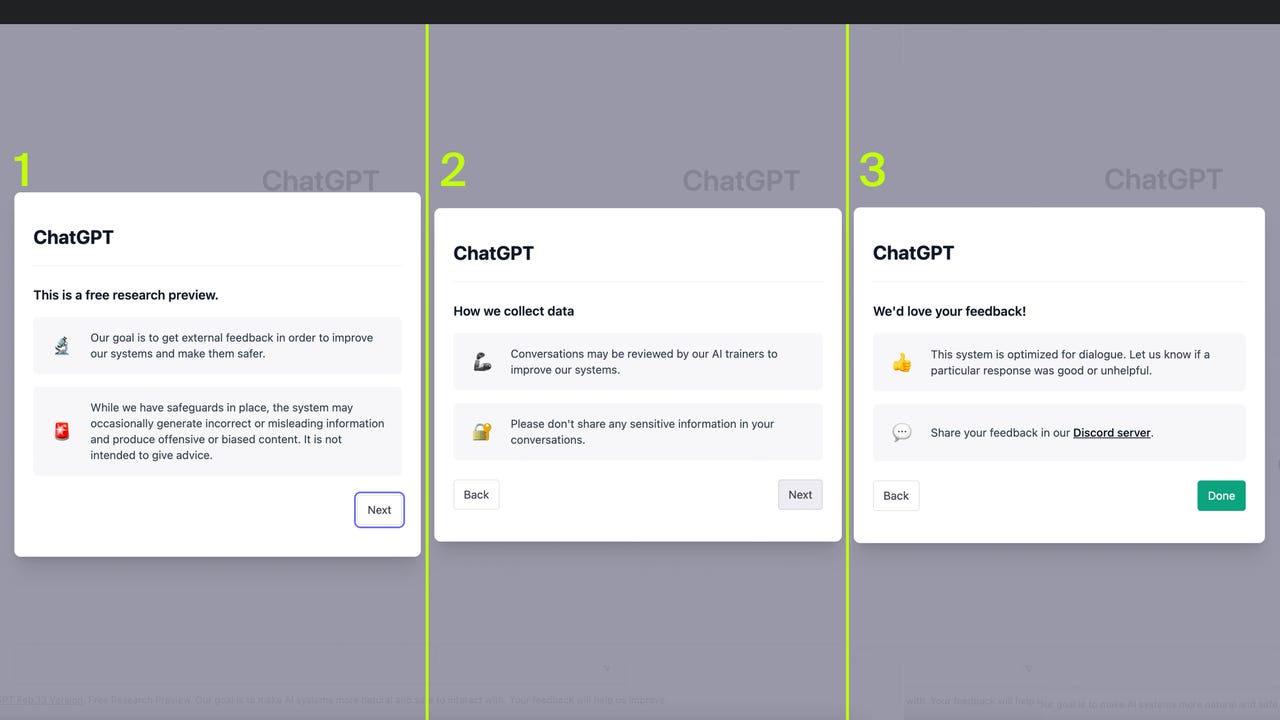


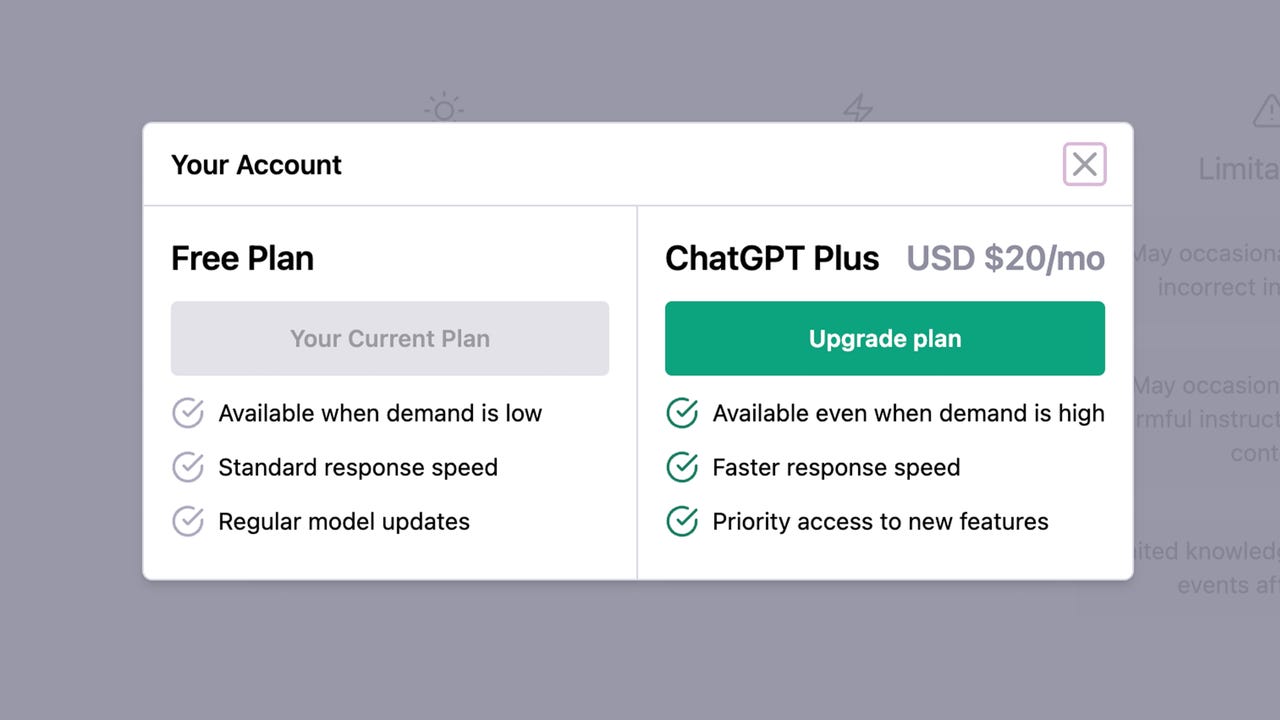
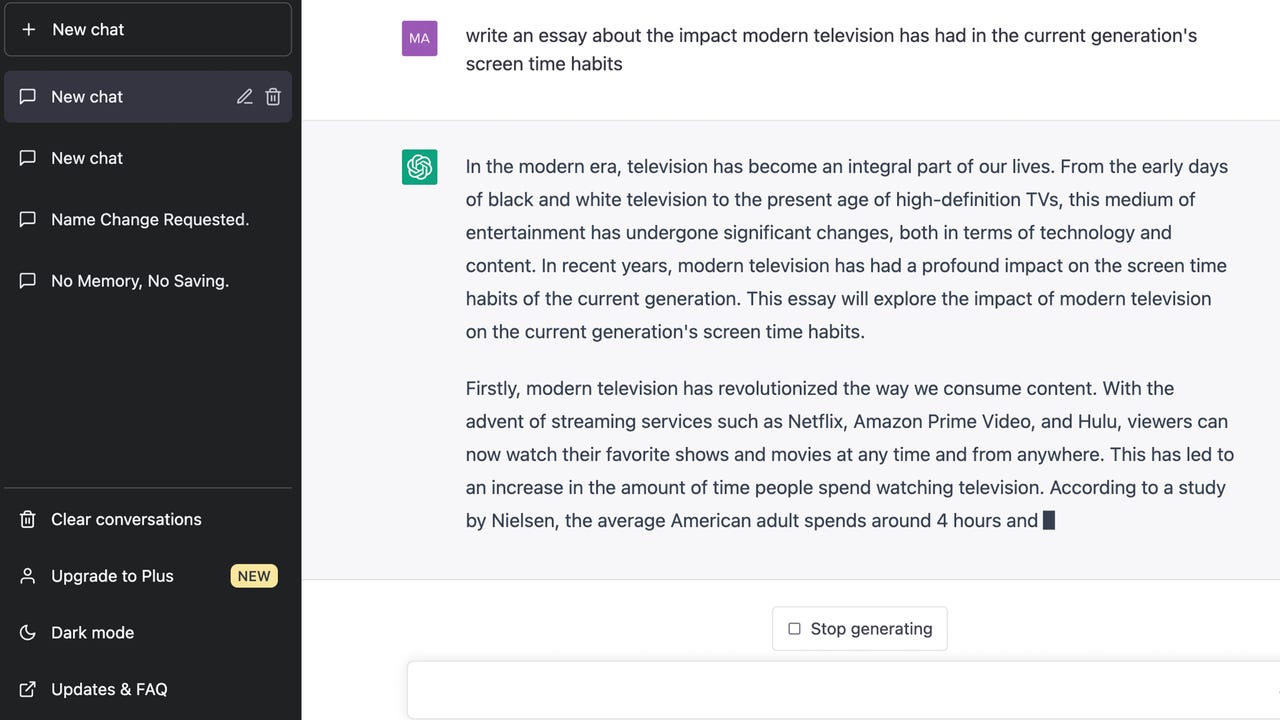
Comments
Post a Comment